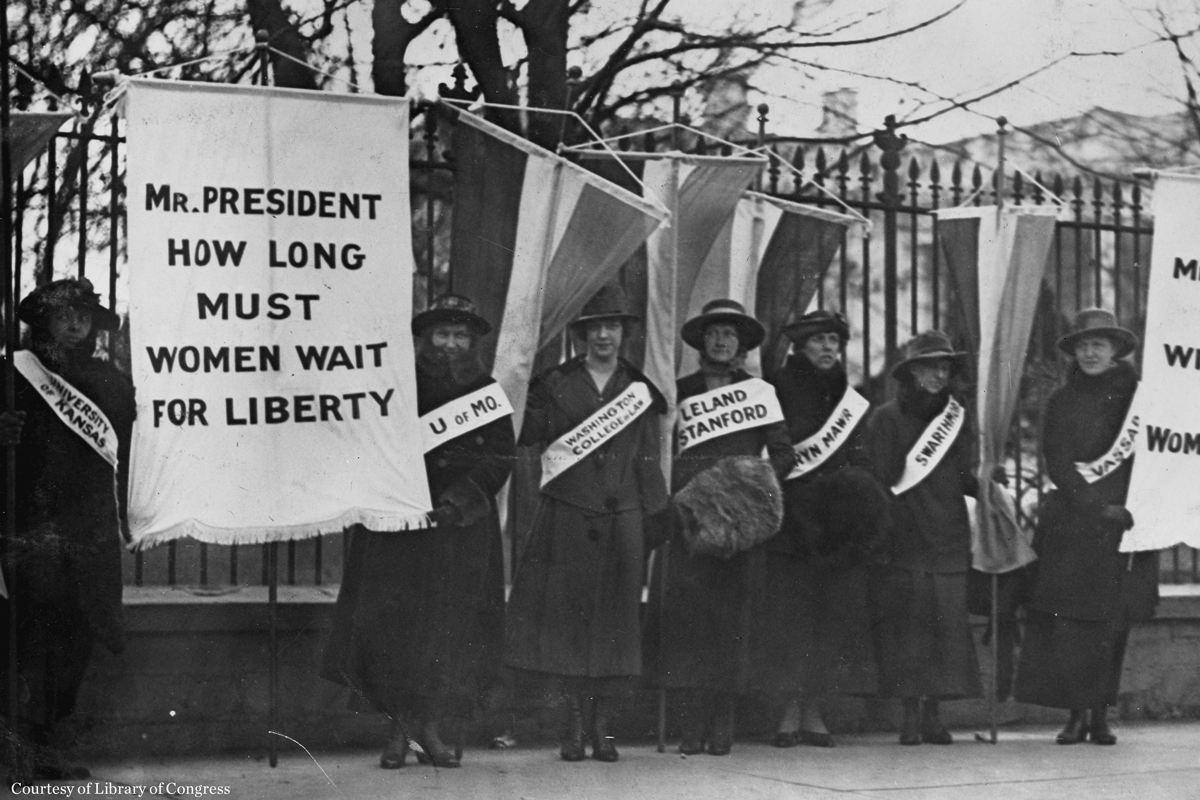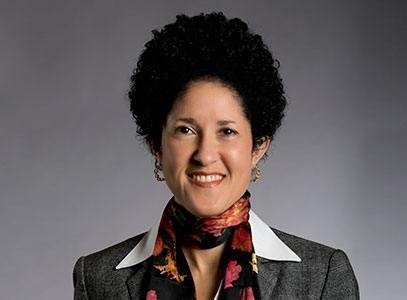 The long march towards progress is often one that extends across generations. The U.S. woman suffrage movement, which resulted in women’s right to vote with the 19th Amendment in 1920 – took 75 years to produce the desired result. That’s three generations of women, each playing a specific role in getting that policy objective to the finish line. Along the way, there were movements and side movements and countermovements, all of which shaped the ultimate contours of that social justice victory. We’ve now gone 99 years past the ratification of the 19th Amendment – that’s almost four generations – and women’s equality is still far from realized. Thus, on this Women’s Equality Day, it seems most fitting to me, as we stare into the century mark of this milestone, that we make a full-court press to fast-track some gender equality moves that would signal a bona fide century’s worth of progress.
The long march towards progress is often one that extends across generations. The U.S. woman suffrage movement, which resulted in women’s right to vote with the 19th Amendment in 1920 – took 75 years to produce the desired result. That’s three generations of women, each playing a specific role in getting that policy objective to the finish line. Along the way, there were movements and side movements and countermovements, all of which shaped the ultimate contours of that social justice victory. We’ve now gone 99 years past the ratification of the 19th Amendment – that’s almost four generations – and women’s equality is still far from realized. Thus, on this Women’s Equality Day, it seems most fitting to me, as we stare into the century mark of this milestone, that we make a full-court press to fast-track some gender equality moves that would signal a bona fide century’s worth of progress.
Here are my suggestions:
First, we should revisit the Equal Rights Amendment. Its simple yet powerful text, originally crafted in 1923 right after women got the right to vote and revised in 1943, reads:
- Section 1. Equality of rights under the law shall not be denied or abridged by the United States or by any State on account of sex.
- Section 2. The Congress shall have the power to enforce, by appropriate legislation, the provisions of this article.
- Section 3. This amendment shall take effect two years after the date of ratification.
In the late 1970s, the Equal Rights Amendment passed both houses of Congress and was signed by President Carter, but failed narrowly during the state-by-state ratification process. That was 40 years ago. In 2019, the Equal Rights Amendment has regained attention, as theoretically only one more state needs to ratify the amendment to reach the majority needed. Do we have the political will to pass the Equal Rights Amendment now? Women’s equality was not a partisan issue then, nor is it one now; women in both parties desire equality and benefit from equality. Passing this constitutional amendment at long last would signal to America’s women and the world that women – and, in fact, people of all genders – are now truly included in “liberty and justice for all.”
Second, we should join the community of nations that has ratified the Convention to Eliminate All Forms of Discrimination Against Women (known as CEDAW). This international instrument, which has already been ratified by every country in the world except for Iran, Sudan, Somalia, Pulau, Tonga, and the United States, is basically like a global Equal Rights Amendment. It addresses women’s human rights and commits nations to legally enshrining them. While the U.S. has made various arguments about why it has not ratified CEDAW, a more powerful statement for gender equality would be to just ratify it!
Other actions that would signal that we are truly in the 21st century when it comes to women’s equality would be stronger laws, policies, and legal procedures that address sexual violence in all its forms for all women (with a nod to the recent groundswell known as the #MeToo Movement), and laws, policies, and legal procedures that enshrine gender spectrum equality (because gender in the 21st century doesn’t mean what it meant 99 years ago).
Lest we think these legal moves towards equality are ends in themselves, we can also consider the fact that social scientists have found links between legal equality at the national level and human wellbeing. For example, a recent multi-national study published in the Journal of Youth and Adolescence showed that greater gender equality at the national level correlates with greater life satisfaction among both female and male adolescents, even with other potentially-influential factors controlled. Thus, there is something to the notion that gender equality, social justice, and human wellbeing are all interrelated and interdependent.
As we look back at and celebrate the generations of women who fought for the right to vote, let us remember that progress doesn’t end there. Each generation must pick up the baton and push forward for increased recognition of gender equality in the law and in our everyday lives. Let’s hope that this time next year when we are celebrating the 100th anniversary of the 19th Amendment, we will also be celebrating the ERA, CEDAW, and, all in all, a bona fide century’s worth of progress on gender equality!
Layli Maparyan, Ph.D., is the Katherine Stone Kaufmann ’67 Executive Director of the Wellesley Centers for Women.


 , Ph.D., is the Katherine Stone Kaufmann ’67 Executive Director of the
, Ph.D., is the Katherine Stone Kaufmann ’67 Executive Director of the 